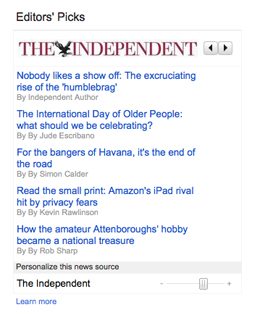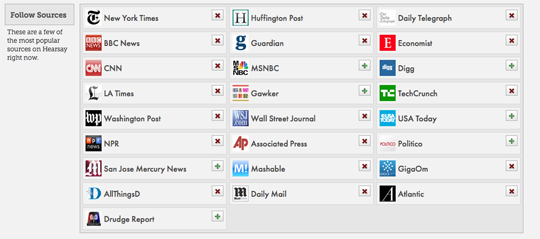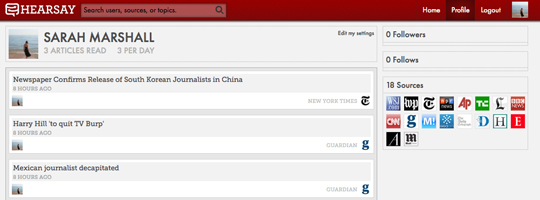The Guardian’s new iPad app has been downloaded 145,880 times since it was launched last Thursday (13 October), with more than a third of those from outside the UK.
The app is free for the first three months due to a sponsorship deal with Channel 4, after which it will cost £9.99 per month.
The Guardian also today revealed that just over a million Facebook users have installed the Guardian’s Facebook app, which was released exactly a month ago.
Since its launch at the beginning of the year, the Guardian’s iPhone app has been downloaded over half a million times; its Android app, which was launched last month, has been downloaded over a quarter of a million times.
Alan Rusbridger, editor-in-chief of Guardian News & Media, said in a statement:
Since launching last week, the new Guardian iPad edition has already been downloaded over 145,000 times. This number of downloads in a week is a fantastic achievement, and shows the appetite among our readers to access our content in new, digital ways. This is our most successful app launch to date, and an important milestone as we continue to evolve into a digital-first news organisation.
Statistics breakdown
iPad app downloads
Total: 145,880
UK: 85,018
US: 29,082
Res of the wold: 31,780
Guardian iPhone app
Since launching in January this year, the app has been downloaded over 570,000 times, with nearly 100,000 users going on to take out subscriptions.
Guardian Android app
This launched last month, on 7 September, and since then the app – which is free and ad-funded – has been downloaded over 250,000 times.






